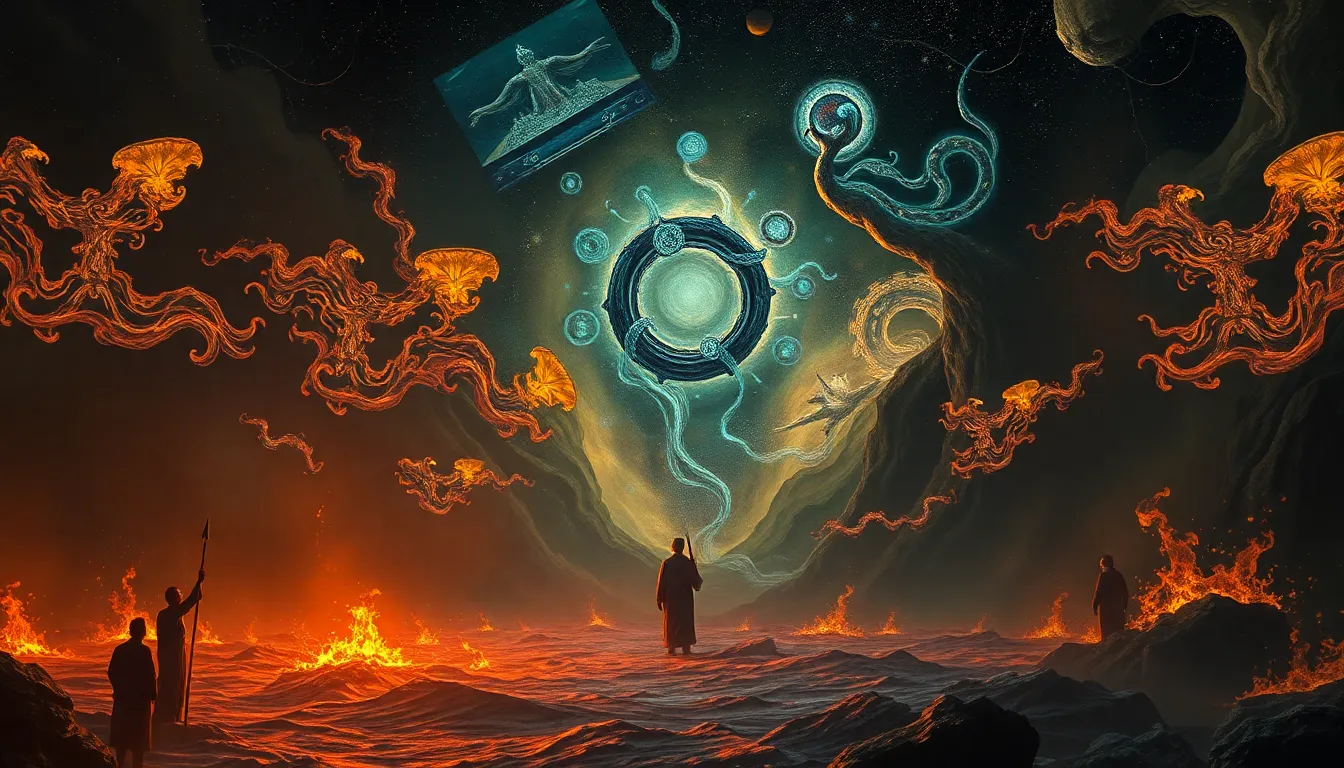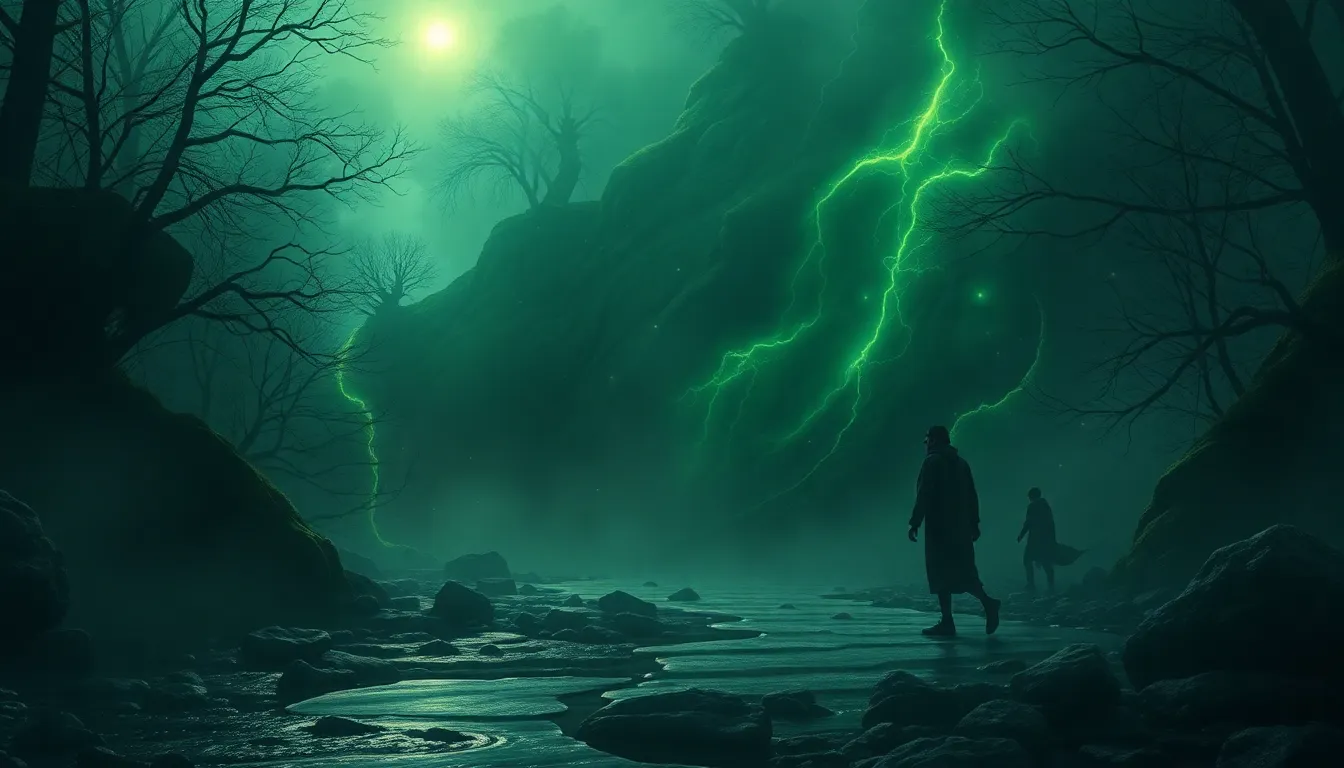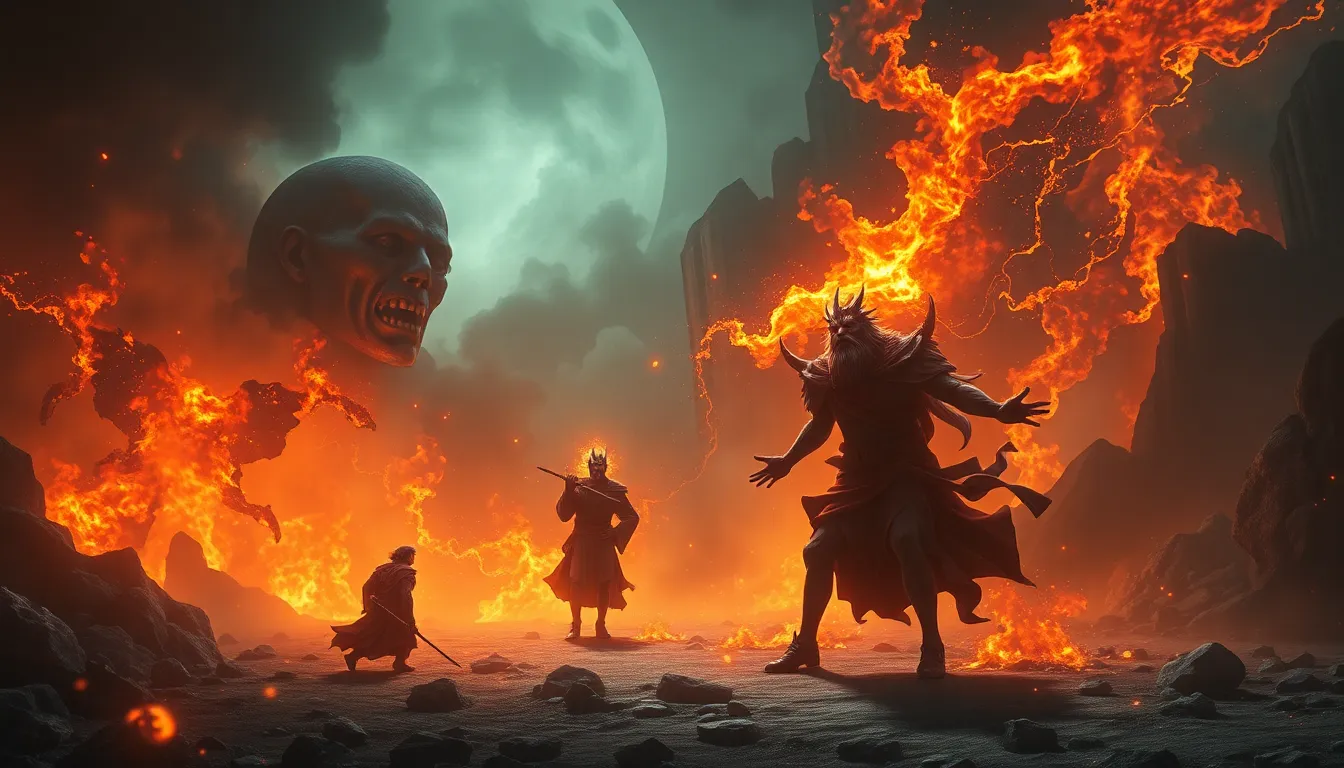The Role of Chaos: How Creation Myths Explain Our Existence
I. Introduction
Creation myths are foundational stories that explain the origins of the world, humanity, and the cosmos. They serve as cultural narratives that encapsulate the beliefs, values, and perceptions of various societies. In these myths, chaos often plays a central role, representing the primordial state from which order emerges.
The concept of chaos varies across cultures, yet it consistently symbolizes the unknown, the unformed, and the potential for creation. Understanding these myths is crucial in exploring the human condition, as they provide insight into how ancient civilizations grappled with existence, creation, and the universe’s mysteries.
II. The Nature of Chaos in Creation Myths
A. Overview of chaos as a primordial force
Chaos is frequently depicted as a potent primordial force, an essential element in the narrative of creation. It is often characterized by its formlessness and unpredictability, embodying the raw materials from which the universe is shaped.
B. Distinctions between chaos and disorder
While chaos can be associated with disorder, it is important to distinguish the two concepts. Chaos serves as a creative foundation, whereas disorder implies a lack of structure or purpose. In many myths, chaos is the necessary precursor to the creation of order, symbolizing potential rather than mere randomness.
C. Historical perspectives on chaos in mythological contexts
Historically, chaos has been interpreted in various ways. From the ancient Greeks to indigenous cultures, chaos has been viewed as both a challenge and an opportunity for creation. These perspectives reflect the complexity of human thought regarding existence and the cosmos.
III. Major Creation Myths and Their Depiction of Chaos
A. The Babylonian Enuma Elish: Chaos as Tiamat
In the Babylonian creation myth, the Enuma Elish, Tiamat represents chaos, embodied as a primordial goddess of saltwater. The narrative unfolds as the younger gods wage war against Tiamat, whose chaotic nature threatens to engulf creation. Ultimately, the defeat of Tiamat leads to the establishment of order, showcasing the transformation from chaos to cosmos.
B. The Greek Chaos and the Birth of Cosmos
In Greek mythology, Chaos is the initial void from which all things emerge. This primordial state gives rise to Gaia (Earth), Tartarus (the abyss), and Eros (love), symbolizing the birth of order from chaos. The Greeks viewed chaos as a necessary element in the cosmic cycle, highlighting the interconnectedness of all existence.
C. The Egyptian Nun: The Waters of Chaos
The ancient Egyptians conceptualized chaos through Nun, the primordial waters that existed before creation. In their myth, the god Atum emerges from Nun, symbolizing the transition from the chaotic waters to the ordered world. The waters of Nun represent both potential and the chaos from which life springs.
D. The Hindu concept of “Pralaya” and cosmic cycles
In Hindu mythology, the concept of “Pralaya” refers to the cyclical destruction of the universe, marking the end of one cosmic cycle and the beginning of another. This cyclical nature emphasizes chaos as an integral part of existence, highlighting the continual interplay between creation and destruction in a cosmic rhythm.
IV. The Role of Chaos in the Birth of Order
A. Transition from chaos to creation in various myths
Across different cultures, the transition from chaos to order is a recurring theme. Myths often depict a struggle or conflict that leads to the creation of the world, showcasing the transformative power of chaos. This transition reflects humanity’s desire to impose order on the chaos of existence.
B. Symbolism of chaos as a necessary precursor to order
Chaos symbolizes the potential for creation, acting as a fertile ground where new ideas, forms, and structures can arise. Without chaos, order would lack context and meaning. This symbolism conveys the idea that challenges and uncertainties can lead to growth and development.
C. Case studies: How different cultures interpret this transition
- Mesopotamian myths: The battle between gods and chaos leads to the establishment of civilization.
- Aboriginal Australian stories: The Dreamtime narratives describe the emergence of land and life from a chaotic void.
- Indigenous North American myths: Many narratives involve a trickster figure who brings order from chaos through their actions.
V. Chaos in Creation Myths and Human Existence
A. The relationship between chaos, creation, and human life
Creation myths often reflect the human experience, illustrating our struggles with chaos in our own lives. The narratives resonate with our attempts to find meaning in a world that can often feel unpredictable and chaotic.
B. Myths as reflections of existential questions
Creation myths address fundamental existential questions, such as the nature of existence, the origin of suffering, and the quest for meaning. By examining how different cultures interpret chaos, we gain insights into their worldviews and philosophies regarding life and existence.
C. Chaos as a metaphor for the human experience
Chaos serves as a powerful metaphor for the human condition. Just as creation myths depict the struggle between chaos and order, individuals navigate their own lives, often facing uncertainty and the unknown. This struggle can lead to personal growth and transformation.
VI. Psychological Interpretations of Chaos in Myths
A. Carl Jung and the archetype of chaos
Carl Jung posited that chaos represents the unconscious mind, filled with untapped potential and creativity. In this view, chaos is not merely destructive but can also be a source of renewal and insight, crucial for personal development.
B. Chaos as a representation of the unconscious mind
Jung’s concept of the unconscious aligns with the depiction of chaos in creation myths. It embodies the parts of ourselves that are often hidden or unacknowledged, suggesting that engaging with chaos can lead to greater self-awareness and understanding.
C. The impact of chaos on personal identity and societal norms
Chaos, as portrayed in myths, challenges established norms and identities. By confronting chaos, individuals and societies can redefine themselves, fostering resilience and adaptability in the face of change.
VII. Comparative Analysis of Chaos across Cultures
A. Similarities and differences in chaos narratives
While the concept of chaos is prevalent in many creation myths, each culture offers unique interpretations. Some emphasize conflict, while others focus on harmony. This diversity reflects the myriad ways cultures understand their origins and the nature of existence.
B. Influence of geography and environment on chaos interpretations
The geographical and environmental contexts of cultures significantly influence their chaos narratives. For instance, societies living in volatile environments may have more pronounced chaos in their myths, highlighting their challenges and struggles.
C. The evolution of chaos in modern retellings of creation myths
Modern retellings of creation myths often reinterpret chaos through contemporary lenses, such as science and psychology. These adaptations can provide new insights into ancient narratives, making them relevant to today’s audiences.
VIII. The Philosophical Implications of Chaos in Creation
A. Chaos theory and its parallels with creation myths
Chaos theory, which explores how small changes can lead to significant consequences, mirrors the themes found in creation myths. This theory provides a scientific framework that resonates with the unpredictable nature of existence portrayed in these narratives.
B. Existentialism and the search for meaning in a chaotic world
Existentialist philosophy grapples with the inherent chaos of life, emphasizing the individual’s role in creating meaning amidst uncertainty. This aligns with the journey depicted in many creation myths, where characters navigate chaos to find purpose.
C. The impact of chaos on moral and ethical frameworks
Chaos influences moral and ethical considerations, prompting societies to define their values in response to the unpredictability of existence




